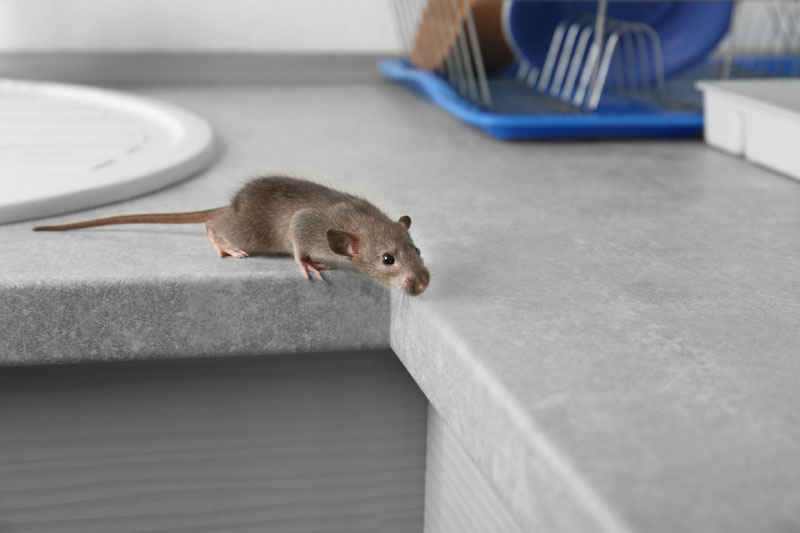It’s distressing when you find chewed gnawed upholstery or mouse droppings in your camper; a great deal of damage can be done, especially over the colder months when trailers are left winterized for long periods. Food and other items are often left in RVs over the winter, and this attracts and keeps rodents in your unit.
Mice can chew through walls and upholstery to get to a food source. And if a rodent does get to your food, throw it out because its contaminated and could be carrying disease.
The arrival of wildlife of one kind or another in your RV is inevitable, so what can you do to protect your camping space?
Preventative measures
One of the best ways to keep mice out of your camper is to use preventative measures. Here are some of the easiest ways to prevent rodents from invading your camping units during the winter.
Cleanliness
Keep your camper as clean as possible; you’d be amazed on how often this is overlooked. Cleanliness goes a long way towards keeping wildlife out. Remember to do a deep clean before and after you put your unit into winter storage. Get into the habit of cleaning daily when you’re using your camper too. Keep it simple: clean down your countertops, tables, and floors. This can make a big difference.
Look for holes
Check your RV for holes in the floor and walls, look out for chew holes at the back and bottom of cabinets, and especially where sections join, such as ceiling corners, floor and cupboard joints etc.. Check inside and out; and fill any places that could be big enough for a mouse to fit through.
Store your RV on concrete
Storing your RV in the yard is what most folks do, but if it’s on grass, it could attract wildlife. The best option is to store your RV on concrete or gravel, such as a driveway, gravel pad, or storage compound. This minimizes any chance of the outdoors coming in; rodents won’t expose themselves and become vulnerable, which they would on open, solid surfaces. If you store on grass, there is a heightened chance that when you go back into your RV you could find mouse nests.
Mouse repellents
There is no perfect way to repel mice naturally, but there some methods that can help.
Ultrasonic pest deterrents: if you have power to your RV during the winter, you can use ultrasonic rodent deterrents. These plug into a standard outlet and send out a extremely high frequency signal that deters mice and rats from entering the space. Use at least two, preferably more, depending on the size of your camper.
Homemade mouse repellents: peppermint is one of the most effective scents to keep mice out of your unit. You can use peppermint leaves, spray, or oil, and make soaked cotton balls or peppermint spray. Use them at the main points of entry.
Soap: bar soap with strong odors, such as Irish Spring, can be effective too. The scent repels mice and you don’t need to replace it as often as other home-made repellents.
Bounce sheets: some people scatter bounce sheets around the place. It not only keeps the mice out, but makes your RV smell nice too!
What to do if mice enter your camping trailer
Despite all efforts, you may still find some kind of rodent has entered your RV. The only thing you can do is find the nests, remove them, and trap them. Live rodent traps are beyond doubt the best practice. They’re safe and you can release them back into the wild. We do not recommend the use of traditional mouse or rat traps, since if they trap and kill a rodent mid-winter, by the time Spring comes, you could have a maggot infestation and flies to deal with too, as well as the pungent smell of decay.
Managing rodents and other wildlife is a big part of any camping activity. Make it part of your routine maintenance, and if you do it well, you’ll minimize the chance that wildlife will invade your RV, cause damage, create mess, and cost you money.


